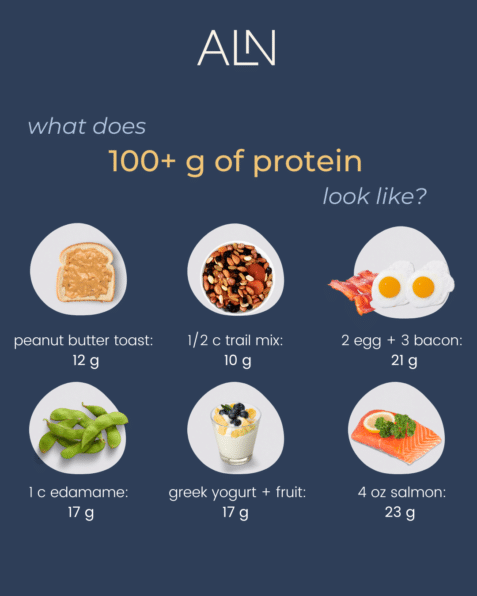Blitz News Digest
Stay updated with the latest trends and insights.
Protein: The Secret Life of Your Favorite Foods
Discover the surprising roles protein plays in your favorite foods and how it transforms your meals into nutrition powerhouses!
Understanding Protein: How It Powers Your Favorite Foods
Understanding Protein is essential for anyone looking to enhance their diet and overall health. This vital macronutrient plays a key role in building and repairing tissues, making it integral to our daily meals. When we think about protein, we often associate it with foods like meat, dairy, and legumes, but it can be found in a variety of our favorite dishes. For instance, a hearty bean chili or a creamy yogurt parfait not only satisfy our hunger but also contribute substantially to our protein intake. Here are some popular sources:
- Chicken and turkey
- Fish and seafood
- Eggs
- Beans and lentils
- Nuts and seeds
The benefits of incorporating protein into our diets extend beyond just muscle repair. It helps to keep us feeling full longer, which can aid in weight management, and it's crucial for the production of enzymes and hormones that regulate various body functions. Understanding how your favorite foods can pack a protein punch allows you to make informed dietary choices. For example, adding a scoop of protein powder to your morning smoothie or choosing quinoa over rice can significantly enhance the nutritional profile of your meals. Remember, a balanced intake of protein not only supports your physical health but also fuels your energy levels throughout the day.

Top 5 Protein-Rich Foods You Didn't Know About
When it comes to boosting your protein intake, most people think of traditional sources like chicken, fish, and beans. However, there are some protein-rich foods that often fly under the radar but can provide an excellent nutritional punch. Here are five surprising additions that can help elevate your protein game:
- Edamame: These young soybeans are not just a trendy appetizer; they pack a powerful protein punch, offering about 17 grams of protein per cup. They're also rich in fiber and essential nutrients.
- Quinoa: Often hailed as a superfood, quinoa is a complete protein, boasting all nine essential amino acids. With 8 grams of protein per cup, it serves as a fantastic base for salads and bowls.
- Greek Yogurt: This thick and creamy yogurt can contain up to 20 grams of protein per serving, making it a perfect snack or a base for smoothies.
- Spirulina: This blue-green algae is a hidden gem in the world of protein-rich foods. Just two tablespoons provide around 8 grams of protein and a host of vitamins.
- Hemp Seeds: These tiny seeds are packed with about 10 grams of protein per 3 tablespoons and are loaded with healthy fats, making them a great addition to various dishes.
Is Plant-Based Protein as Effective as Animal Protein?
As more individuals embrace plant-based diets, the question arises: Is plant-based protein as effective as animal protein? Both sources provide the essential amino acids that our bodies need, but their effectiveness can vary depending on several factors. Animal proteins, found in meat, dairy, and eggs, are considered complete proteins, meaning they contain all nine essential amino acids in sufficient quantities. In contrast, many plant-based proteins are incomplete, lacking one or more essential amino acids. However, by combining different plant sources, such as beans and rice or nuts and seeds, one can still achieve a complete amino acid profile.
Additionally, research suggests that while plant-based proteins may be lower in certain amino acids compared to their animal-based counterparts, they can offer unique health benefits. For example, plant proteins often come with a wealth of vitamins, minerals, and antioxidants that contribute to overall health. Furthermore, diets high in plant-based proteins are associated with lower risks of chronic diseases, such as heart disease and diabetes. In conclusion, while both plant-based and animal proteins can be effective in supporting muscle building and repair, the best choice largely depends on individual dietary preferences and health goals.